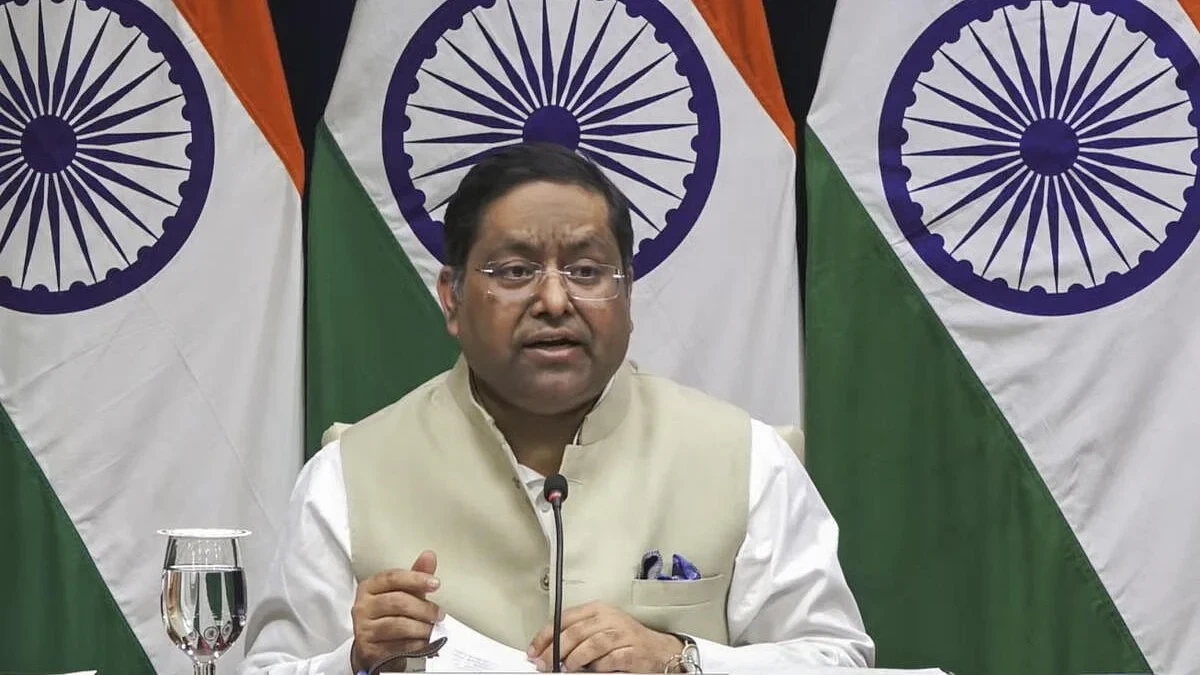New Delhi: After NATO Secretary General Mark Rutte warned India, Brazil and China against buying energy from Russia, New Delhi on Thursday not only cautioned the West against applying double standards on the issue, but also asserted its strategic autonomy by indicating its openness to revive trilateral talks with Beijing and Moscow.
Moscow had last year proposed the revival of the Russia-India-China (RIC) trilateral talks.
New Delhi and Beijing on Thursday separately expressed their willingness for the revival of the mechanism.
New Delhi stressed that India would be guided by market dynamics while securing the energy needs of its people. “We would particularly caution against any double standards on the matter,” Randhir Jaiswal, the spokesperson of the Ministry of External Affairs, told journalists.
He was replying to a question on New Delhi’s reaction to the NATO chief’s threat to impose 100 per cent sanctions on China, Brazil and Russia if they continued to buy oil and gas from Russia, which had been placed under sanctions by the United States and the European Union ever since President Vladimir Putin launched the ‘special military operations’ in Ukraine.
“Securing the energy needs of our people is understandably an overriding priority for us,” the MEA spokesperson in New Delhi stated, adding: “In this endeavour, we are guided by what is on offer in the markets, and by the prevailing global circumstances.”
The NATO chief’s comment raised hackles in New Delhi, where officials pointed out that the West had continued to buy fossil fuel from Russia even after the launch of the ‘special military operations’ in Ukraine in February 2022, but had been asking other nations to stop doing business with the former Soviet Union nation.
In 2024, the third year of Russia’s ‘special military operations’ in Ukraine, the total imports of fossil fuels from Russia by the European Union nations totalled EUR 21.9 bn, a 6 per cent year-on-year drop in value but merely a 1 per cent year-on-year drop in volumes, according to a report by CREA (Centre for Research on Energy and Clean Air).
The report also noted that the imports of fossil fuels from Russia by the EU nations surpassed the EUR 18.7 bn of financial aid they sent to Ukraine in 2024.
The three biggest buyers of Russian fossil fuels, China (EUR 78 bn), India (EUR 49 bn), and Turkey (EUR 34 bn) were responsible for 74 per cent of Russia’s total revenues from fossil fuels in the third year of the invasion, according to the CREA.
Despite drawing flak from the US and the rest of the West, India continued to increase its imports of crude oil from Russia after the launch of the war in Ukraine, arguing that its move, in fact, was helping lessen the volatility in the global energy market.
New Delhi also pointed out that Europe had imported much more oil from Russia than India after the war started in Ukraine.
Jaiswal on Thursday also did not rule out the possibility of the resumption of the RIC trilateral talks.
“This consultative format is a mechanism where the three countries come and discuss global issues and regional issues of interest to them,” said the MEA spokesperson, adding: “As to when this particular RIC format meeting is going to be held, it is something that will be worked out among the three countries in a mutually convenient manner, and we will let you know as and when that happens at an appropriate time when the meeting is to take place.”
He was replying to a question on the possibility of the revival of the RIC meetings.
Modi, Putin, and Xi had held the second RIC summit on the sidelines of the G-20 conclave in Buenos Aires in December 2018 – almost 12 years after the then leaders of the three nations had held the first trilateral meeting. They had held the third RIC summit on the sidelines of the G-20 meet in Osaka in June 2019. The summit, however, could not be held since 2020, as the Covid-19 pandemic swept the world and India’s relations with China hit a new low over the military stand-off along the Line of Actual Control between the two nations in eastern Ladakh.
Jaishankar, however, on June 23, 2020, and on November 26, 2021, joined Lavrov and Wang in virtual RIC meetings.
The meeting of the RIC foreign ministers also did not take place in the past three years.
The relations between New Delhi and Beijing were on the mend since the four-and-a-half-year-long military stand-off along the LAC came to its end in October 2024.
